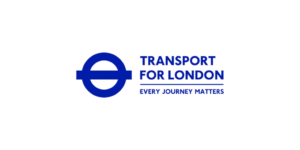Chartered Accountant Jobs
Chartered Accountant jobs… did you know?
Imagine a job where…
- It pays to have a passion for business
- People listen to your advice on ways to improve their business, even if you’re still young
- You can do business apprentices and even degree apprenticeships as a school leaver
- Your starting salary is around £25,000 a year as a graduate.
Chartered accountancy is a fascinating career choice. The days of nerds with shirt pockets full of pens are long gone. Accountancy these days is modern, high-tech and great for both your bank account and your personal development when you take it on as a career.
Industry: Legal, Finance and Accounting
Chartered accountant job trends
How much money can you make as a chartered accountant?
£25,000 – £-56,000 (UK average)
Recent labour market information says you can earn on average between £25,000 and £-56,000 a year as a chartered accountant in the UK.
Your starting salary can vary because of factors like level of experience, training, location or the size of the company. Your salary as a chartered accountant will increase over time as you build skills, knowledge and experience.
What does 'chartered accountant' mean?
A chartered accountant is an accountant who has gone through a structured training process. Once you have chartered status, you can prove you have expert knowledge on how to file a business’ tax return, perform financial audits, and offer financial advice to clients.
These are the three UK-based institutes offering chartered accountancy qualifications:
Whichever institute you go with, your achievement will have the same prestige and status. You’ll need to apply for and get a training contract with an employer who’s been approved by any of these institutes. Depending on the individual training package, it will take three to five years to complete your training.
What qualifications do you need to become a Chartered Accountant?
School, college and training
At school or college, keep up an interest in maths and business studies through GCSEs (or their equivalents) and beyond. You’ll always need business awareness and familiarity with numbers. Accountancy apprenticeships typically expect you to have good passing grades in maths in your GCSEs – and sometimes even A-levels, depending on your apprenticeship level.
On leaving school, your next step might be to work towards a degree or else towards a HND. Alternatively, you could apply for a junior accountancy role with the aim to work your way up. Impress your employer and, with time and experience, you may be able to get employer support in training towards chartered status.
Do you need a degree to become a chartered accountant?
Chartered accountancy roles and training packages are typically open to graduates with a degree. Graduates with a degree related to accounting, finance, economics or business will especially stand out.
If you’re taking the graduate route, be aware that there’s a lot of competition when it comes to getting training contracts with employers who offer chartered status training as part of the package.
Get stuck into applying nice and early to maximise your chances of landing a contract – say, during autumn in your final year of uni.
Apprenticeships and traineeships
So… how do you become a chartered accountant by taking the apprenticeship route?
There are many accountancy apprenticeships available in the UK today. You’d most likely be trained to work in an accounts department and learn essential skills like:
- Balancing accounts
- Processing invoices and payments
- Completing VAT returns
- Helping to prepare financial statements and reports.
There are three types of accounting apprenticeship:
- Intermediate (e.g. accounts assistant)
- Advanced (e.g. trainee accounting technician)
- Higher (e.g. accounting technician, accounts manager)
On completing the higher apprenticeship, you could become a member of the Association of Accounting Technicians.
As a member of the AAT, you could then go on to complete a professional accountancy qualification with a chartered body.
Career Progression and further qualifications
CPD (continuing professional development) is a big part of your career once you qualify as a chartered accountant.
As a newly qualified chartered accountant, your typical roles might be:
- Financial accountant
- Business analyst
- Internal auditor
Many chartered accountants tend to work in financial services, banking, commerce, industry and the public sector (including non-profit organisations).
What experience do you need for chartered accountant jobs?
Work experience
To become a chartered accountant, you’ll find it useful to have previous work experience related to numbers, business, records and reports in an office-based environment.
Many young people take the graduate route to begin their accountancy career. If this sounds like you, be sure to apply to work placements with an employer as part of your degree. Keep an eye out for relevant employers at campus recruitment fairs.
Examples of relevant work experience include:
- Work shadowing (even if it’s just for a day)
- Work placements in a company
- Year-long industry placements on a sandwich degree course.
What skills do you need for chartered accountant jobs?
Useful skills to highlight to your employer when applying for jobs as a chartered accountant, clerk or apprentice include:
Vocational qualifications and work experience will help you build these skills over time.
- Self-belief skills (motivation to train and progress)
- Communication skills (e.g. diplomacy giving ‘tough love’ advice to clients)
- Self-management skills (great timekeeping and organisation)
- Teamworking skills (which could build to leadership skills with time and experience!)
- Problem-solving skills (taking a logical approach, breaking big challenges down into small ones)
- Numeracy
- IT skills (accountancy is high-tech these days and employers might want to train you in specialist software)
Vocational qualifications and work experience will help you build these skills over time.
Start building these vital life and work skills now with our free Young Professional training.
What does a chartered accountant do?
Once you’re a chartered accountant, you’ve achieved a major landmark in your career. With all that training and experience under your belt, you’ll be able (and expected) to do the following:
- Give financial advice to clients (on anything from going bankrupt to business improvements and planning ahead for tax returns)
- Manage budgets and financial systems
- Carry out financial audits for companies and organisations
- Produce reports and recommendations based on your audits
- Potentially take on a leadership role to manage junior team members.
Legal/finance employers supporting young jobseekers
Explore all jobs in Legal, Finance and Accounting
-
Account Manager – Cleaning Careers
-
Finance Administrator – Cleaning Careers
-
ABP Apprenticeships, Graduate Schemes and Early Careers
-
Graduate Schemes with ABP
-
Apprenticeships with Youth Friendly Employer ABP
-
Solicitor
-
Forensic Accountant
-
Chartered Accountant
-
Payroll Administrator
-
Legal Secretary
-
Finance Administrator
Useful organisations and links for finance careers



So what are you waiting for? Grab your future.

























